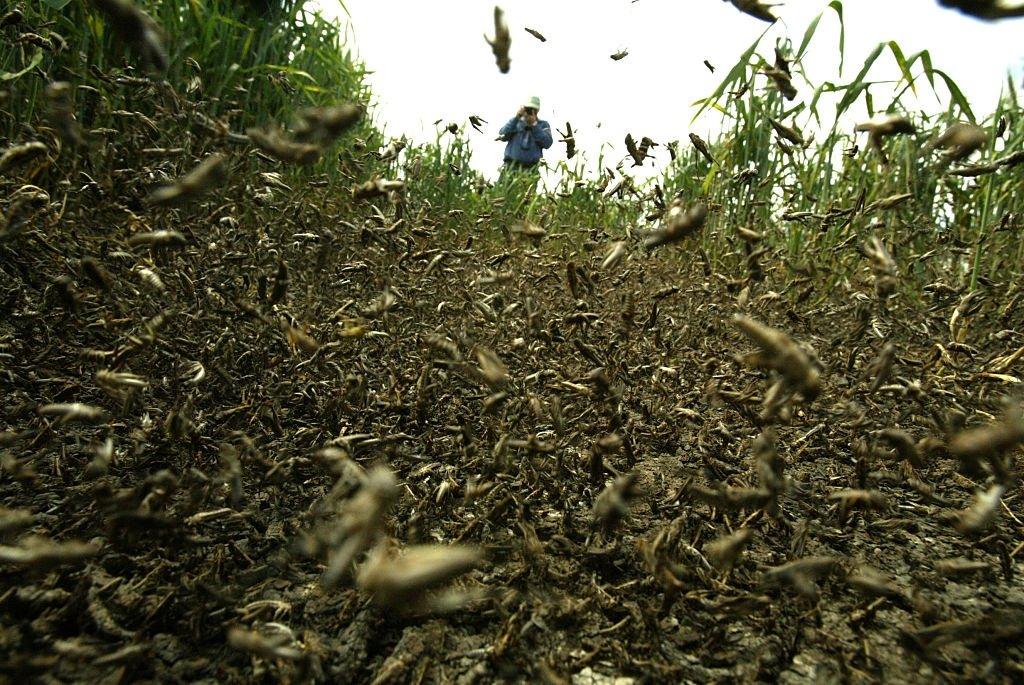Africa-Press – South-Africa. The Eastern Cape government is helping farmers who are under siege from swarms of locusts that are devastating their crops.
The first migration of the brown locust in the Eastern Cape was first detected late in2021 and the Department of Rural Development and Agrarian Reform subsequently raised the alarm.
Alice, Hogsback and Kieskammahoek, which fall under the Amathole District Municipality, have been the latest areas on which the destructive insects have descended.
Desperate Eastern Cape farmers appeal for help amid devastating drought
The department is using aerial and ground spraying to control the swarms.
Rural Development and Agrarian Reform MEC Nonkqubela Pieters said the department was collaborating with the national Department of Agriculture to conduct awareness campaigns about brown locust containment and management in the affected farms and communities.
In April, Agriculture Minister Thoko Didiza said the locust outbreak was due to high rainfall, which caused the outbreaks to escalate and new generations to develop.
The wind is also pushing the swarms to areas where they have never been so prolific, such as the Garden Route in the Western Cape and citrus farms in Kirkwood and Patensie, the Eastern Cape.
Up to 1 200 controllers were appointed, and two helicopters are spraying mostly inaccessible areas where there are huge locust outbreaks
In a statement on Friday, Pieters said the total hectarage being sprayed in the Eastern Cape was 20 659.5 hectares.
This week, spraying in Somerset East, Pearston, Paterson, Adelaide, Bedford, Fort Beaufort, Riebeeck East and Makhanda covered more than 4 900 hectares.
In April, 43 000l and 14 000kg of the insecticide Sum-Alpha, and 8 000l of Decis were used in affected areas.
However, the Department of Rural Development and Agrarian Reform received reports that some private exterminators were using chemicals that not only killed the insects, but also contaminated the soil.
There have also been reports of over-spraying.
To help bring the situation under control and effectively exterminate the locusts, Pieters said the department was urgently training extension officers and private land users on how to detect the brown locusts, and control them through the use of chemicals on the ground.
She urged farmers to obtain GPS co-ordinates of where they have spotted the pests resting, and to send controllers the pin.
Pieters said when spraying occurs on grazing land, animals have to be removed from camps to adhere to the insecticides’ withholding period.
A withholding period is stated on the insecticide product’s directions as the minimum amount of time that the sprayed area cannot be cut for hay or used for grazing.
“This collaborative approach between government and organised agriculture is expected to help bring total control of the insects even in residential areas where backyard food production often takes place and aerial spraying cannot be effected,” she added.
Another Joint Operation Centre meeting is set to take place again on 11 May 2022.
For More News And Analysis About South-Africa Follow Africa-Press






